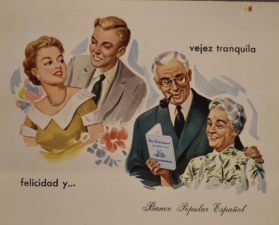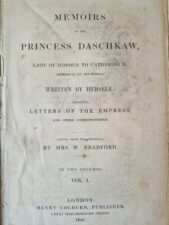On May 17th, 1864, Jennie Green and her friend, Nellie Wyatt, arrived with the 11th Pennsylvania Cavalry at City Point, Virginia. The two girls had recently escaped slavery in Sussex County, seizing the opportunity the war had presented to carve out new opportunities for themselves [1]. When they arrived at Army headquarters, the girls were told they would be put to work cooking for the men and were escorted to a building. Rather than a range, firewood, and supplies, however, the girls found only more soldiers, who quickly separated the refugees. Afraid for Jennie’s welfare, Nellie sought out the regiment chaplain, William Hunter, and raised the alarm. Hunter barged into the room where Jennie was being held, finding her ‘crying very badly’ and tugging at her clothes. The man who had been with her, Lieutenant Andrew J. Smith, fled the scene, but was quickly apprehended at Hunter’s insistence. Caught red-handed in an act of such flagrant misconduct, Smith was court-martialled, convicted of rape, and sentenced to ten years’ confinement at hard labour [2].
The prosecution of white men who raped Black women and girls during the American Civil War (1861-1865) marked a drastic shift in the lives of formerly enslaved women. Denied legal protection against sexual violence while enslaved, the use of military courts to address complaints of abuse opened the way for Black women to assert bodily integrity as a key battleground upon which freedom could be contested. In prosecuting their attackers and testifying against them in hearings, freedwomen established a culture of testifying during the war that continued to shape struggles over gendered and racial equality into Reconstruction (1865-1877) and beyond [3]. In their refusal to remain silent, and in their rebuttals of racist allegations of promiscuity, Black women established an understanding of emancipation that utterly upended established social relations rather than simply liberated labourers.
Despite the conviction of Andrew Smith, and many other men like him, the justice that Black women found during the Civil War remained limited. The disparities in the Army courts were stark. Black men convicted of rape were far more likely to be executed than their white counterparts, and in general received much harsher sentences [4]. Black women saw perpetrators acquitted and pardoned more frequently – if they even saw their day in court to begin with. These inequalities did not go unremarked upon by military officials, who during the course of their administrative confronted a paper trail of iniquity passing across their desks.
General Benjamin Butler could not help but remark upon the conviction of Andrew Smith when it was forward to him for his approval. Butler was disgusted by Smith’s behaviour, and quick to condemn the officer for his egregious assault upon Jennie Green:
A female negro child quits slavery, and comes into the protection of the federal government, and upon first reaching the limits of the federal lines receives the brutal treatment from an officer, himself a husband and a father, of violating her person [5].
In Butler’s mind, Smith’s position – both socially and within the Army ranks – served only to condemn him further. Smith’s wife and child, a young family that bought him some sympathy in the mind of the court, invoked further ire. Rather than answer a plea from the convicting court to grant Smith leniency, Butler confirmed the sentence and added further commentary reflecting his disproval. In doing so, Butler highlighted more than his anger at Smith’s behaviour and treatment, however, but also exposed his awareness of the structural injustices that were thriving in Army courts. In condemning the court for the light sentence handed down to Smith – rape was, at this time, a capital offence – Butler drew comparisons to a recent case that had reached its conclusion only three days before Butler authored his endorsement.
On June 21st, 1864, Union forces had hanged William Johnson, a deserter from the 23rd US Colored Troops, in full view of the Confederate lines in Petersburg, Virginia. Earlier that same month, Johnson had been detained by cavalrymen in the act of attempting to rape a white woman, Lucy Batkins. The execution was a remarkable one and clearly driven by racial anxieties about enlisting black men and deploying them against Southern whites. As the scaffold was constructed in Petersburg, Confederate artillery fired upon the Union troops, unsurprisingly anticipating that they were about to witness one of their own being executed. In response, a white flag was flown next to the scaffold, to indicate to Confederate forces that this was not the case [6]. Reports and images of the execution were circulated widely, the US Army clearly seizing on the opportunity to remind the nation that the cause of white supremacy was shared across sectional lines, regardless of the military enlisting Black men to fight against Southern rebel forces.
It was this eventful execution that Butler conjured in his condemnation of Andrew Smith’s sentence. ‘But a day or two since,’ he penned on the court record, ‘a negro man was hung in the presence of the army for the attempted violation of the person of a white woman.’ Butler was explicit about the purpose of his comparison: ‘Equal and exact justice would have taken this officer’s life.’ Likely frustrated by the facts of Smith’s attack on Jennie Green, the General made the inequalities of military justice plain. Jennie’s apparent youth, her vulnerability, and Smith’s elevated position, all served to drive Butler to a moment of candour that appears rarely in the courts-martial files.
Candour only goes so far, however. Ultimately, Butler approved Smith’s sentence, concluding that ‘imprisonment in the Penitentiary for a long term of years, his loss of rank and position […] would be an almost equal example.’ Butler pushed for no further punishment in this case, and does not appear to have instructed courts to act fairly in future. Once Butler washed his hands of the case, an even greater miscarriage of justice occurred. In what Susan Barber and Charles Ritter have called an ‘uncharacteristic move,’ President Abraham Lincoln order further inquiries to be made [7]. An investigating attorney reported to Lincoln that Jennie Green was not an innocent child but a ‘wicked woman,’ claiming that she seduced and entrapped Andrew Smith for some unknown purpose [8]. Following the advice of the attorney, Lincoln gave Lieutenant Andrew Smith a full pardon on December 12th, 1864. Jennie Green, whose suffering had inspired so much sentiment in Benjamin Butler, was once more reduced to a stereotype, an unrapeable ‘Jezebel’ rather than a violated girl. The promises of emancipation remained distant.
Image: Edwin Forbes, ‘Contrabands escaping’ (May 29, 1864), Library of Congress [https://www.loc.gov/resource/ppmsca.20701/] [1] It is unclear whether Jennie Greene was an adult woman or a girl – she is referred to as both by different people at different stages in the court process. White people’s use of the term ‘girl’ to refer to black women/girls often had little to do with age – women were sometimes referred to as girls to infantilise them; girls were often referred to as women to sexualise them. It seems almost certain that Jennie was not an adult woman. While in the charges she is referred to as a ‘colored woman,’ the other formerly enslaved woman who was present during the assault told the court ‘she ain’t nothing at all but a child.’
[2] Trial of Andrew Smith, 11th Pennsylvania Cavalry, Military Commission Case File, NN 2099, Records of the Judge Advocate General’s Office (Army), Record Group 153, National Archives and Records Administration, Washington, DC [3] See, for example, Kidada E. Williams, They Left Great Marks on Me: African American Testimonies of Racial Violence from Emancipation to World War I (New York, 2012) [4] E. Susan Barber and Charles F. Ritter, ‘Dangerous Liaisons: Working Women and Sexual Justice in the American Civil War,’ European Journal of American Studies 10:1 (2015), 1-16 [5] Endorsement of Benjamin Butler, June 24th, 1864, on Trial of Andrew Smith [6] ‘Execution of the Negro Johnson – The Enemy Throwing up Works in Front of Petersburgh [sic],’ New York Times, June 23, 1864 [7] Barber and Ritter, ‘Dangerous Liaisons,’ 11 [8] Report of William Johnson to the President of the United States, in Trial of Andrew SmithLiz Barnes is a historian of sexual violence in the mid-nineteenth century US South and currently a Women’s History Network ECR Fellow. As part of her fellowship, she is developing this research into an article.


